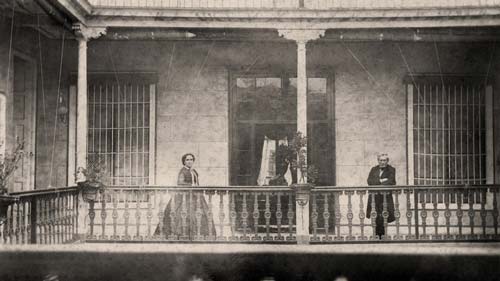
In einem Gastbeitrag in DIE ZEIT stellt Ulrich Mücke die von ihm herausgegebenen Tagebücher von Heinrich Witt vor:
Der Altonaer Kaufmann Heinrich Witt machte in Peru ein Vermögen. Und er schrieb Tagebuch. Es zeigt, wie eng Kolonialismus und Bürgerlichkeit im 19. Jahrhundert verbunden waren.
Weiter lesen auf ZEITonline: «Ein Rassist gibt Auskunft».
Manches an der Geschichte von Heinrich Witt erinnert an den knapp hundert Jahre später von Altona nach Mexiko ausgewanderten Carlos Linga, der einen Großteil seines in Lateinamerika gemachten Vermögens in Bücher investiert hat (und dessen Vermächtnis mit der Linga-Bibliothek fortgeführt wird, siehe linga-bibliothek.de). Aber was die beiden unterscheidet, ist die Dokumentation ihres Lebens per Tagebuch. Witts Aufzeichnungen sind in 10 Bänden auf über 7.900 Seiten in einer beachtlichen Editionsleistung von Ulrich Mücke und von seinen zahlreichen Mitarbeiterinnen und Mitarbeitern publiziert und, wie im Gastbeitrag in die ZEIT beschrieben, ein einzigartiges Dokument der Sichtweisen eines norddeutschen Kaufmanns auf Lateinamerika und auf die Welt im 19. Jahrhundert. In den Witt’schen Tagebüchern liest sich das in etwa so:
The department of Puno contains a population of rather more than a 100,000 souls, and nearly all of them are Indians. In the time of the Spanish dominion they paid a tribute $5 yearly, each grown up man. With the declaration of Independence the odious name of tribute was altered into that of contribution and the $5 an- [152] nually were reduced to $4; with which measure, those who thought themselves well acquainted with the Indian character, were by no means satisfied. They told me and I believe them that the Indian is lazy by nature, and that as his wants are very few, only the obligation he was under to pay the tax imposed upon him by Goverment made them work, from which the natural conclusion was drawn that the less he would have to pay, the less would he work and the greater would be the loss for the country as they are the only ones who all over the interior are occupied in Mineral and agricultural pursuits – “El Indio come sin aseo, vive sin dolor, duerme sin rezelo muere sin miedo” – anglice: “the Indian eats without cleanliness, lives without pain, sleeps without fear, dies without dread” were the outlines of the Indians charac., given me more than once; but what would those gentlemen who were averse to the diminuition of $1 say at present when the contribution formerly paid by the Indians is completely abolished?
Zitat aus: «The diary of Heinrich Witt», edited by Ulrich Mücke, S. 122 f (Hervorheb. durch Redaktion)
Angehörige der Universität Hamburg können die Tagebücher als E-Book unter diesem Link aufrufen: «The diary of Heinrich Witt».